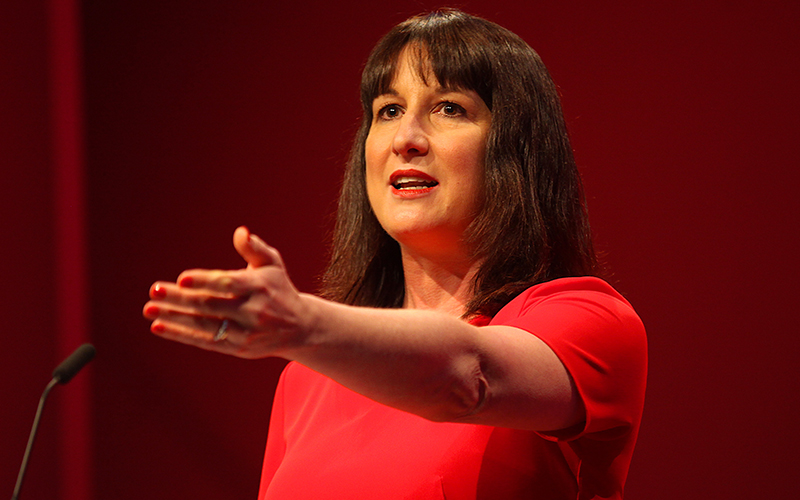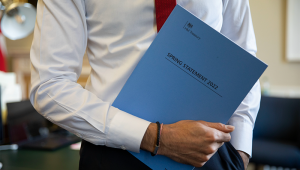
Rachel Reeves. Image © Rupert Rivett/Shutterstock
Rachel Reeves, who insisted the statement does not constitute a major fiscal event (she has committed to holding just one each year: the Budget), has taken measures the Office for Budget Responsibility said will reduce annual benefit spending by £4.8bn.
Taken alongside measures of support for people currently receiving benefits to find work and increased spending in the Department for Work and Pensions, the OBR said the changes will save £3.4bn.
Reeves committed to “non-negotiable” fiscal rules in her first Budget, including showing current spending being covered by revenues and debt falling as a percentage of national income by 2029-30.
This commitment has left her with very little room for manoeuvre, and has led to speculation she will increase taxes in response to the OBR cutting its 2025 prediction for economic growth in half – from 2% to 1%.
She said the steps taken today restore the headroom against the first rule, and that current plans would see the day-to-day budget balanced by 2027-28.
“I said that our fiscal rules were non-negotiable, and I meant it,” she said.
“I will always deliver economic stability, and I will always put working people first.”
Paul Johnson, Director of the Institute for Fiscal Studies, said: “This was just about the smallest fiscal event Rachel Reeves could have managed in the context of her fiscal rules and the minor forecast downgrade presented to her by the OBR.
“The fact that a fairly run-of-the-mill change to the forecast forced her to cut her spending plans reflects the tiny amount of headroom she chose to leave against her targets last October. In today’s Spring Statement, departmental spending plans and, it seems, welfare policy have been fine-tuned to return to precisely the same amount of headroom that she had previously.”
This apparent fine-tuning could suggest policy decisions are being made to strictly follow the fiscal rules, rather than being driven by pursuing particular outcomes.
Johnson said: “Knocking a pound a week off the main rate of universal credit in order, it seems, to return the fiscal headroom to exactly where it was last October, really does risk undermining the idea that benefit reform, which is much needed, is being made for any reason other than chasing a fiscal number.
“One could say similar things about small adjustments to spending numbers and finding a billion of tax revenue down the back of the sofa from increased compliance and debt collection: policy is seemingly being fine-tuned in pursuit of an arbitrary and highly uncertain measure of ‘fiscal headroom’.”
Theo Bertram, director at the Social Market Foundation think-tank, said: “No new tax hikes emerged, though targeted increases that the SMF has argued for (e.g. online casinos, empty homes) could have softened disability cuts, which look set to increase the number of people in poverty by 250,000 by 2029-30.
“The OBR ensures fiscal accountability. The Truss budget showed the cost of ignoring it. But extremely strict adherence to rules based on [Treasury]-OBR micro-haggling over unreliable forecasts is also consequential and questionable. Level-headed cross-party debate is needed on the right balance.”
New taxes appear to be on the horizon, according to commentators.
“The pressures on the state – both international and domestic - are set to grow in the coming decade. Greater government efficiency can contribute to this – but won’t be enough on its own,” said Harry Quilter-Pinner, executive director at the IPPR think-tank.
“The government needs to think long-term about who should bear these costs over time – and make different choices to previous governments, not least those made by George Osborne.
“Right now, there are options on the table for raising revenue without breaking the government’s self-imposed tax rules – from closing loopholes in capital gains and inheritance tax to looking again at gambling levies.”
Johnson said the iron-clad fiscal rules will naturally increase uncertainty about tax decisions.
“We can surely now expect six or seven months of speculation about what taxes might or might not be increased in the autumn,” he said.
“There is a cost, both economic and political, to that uncertainty. The government will suffer the political cost. We will suffer the economic cost.”











